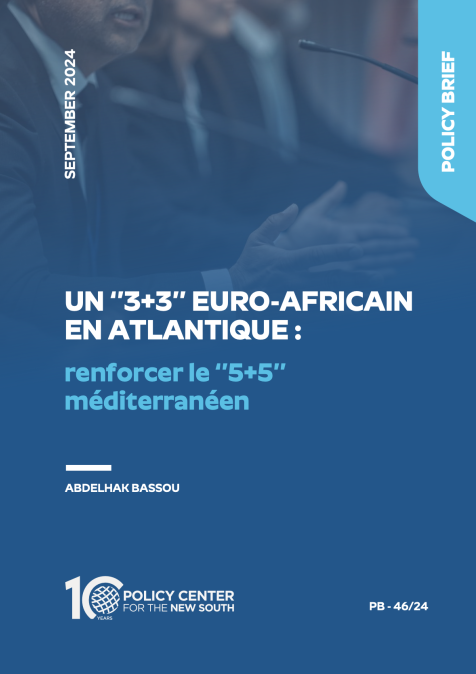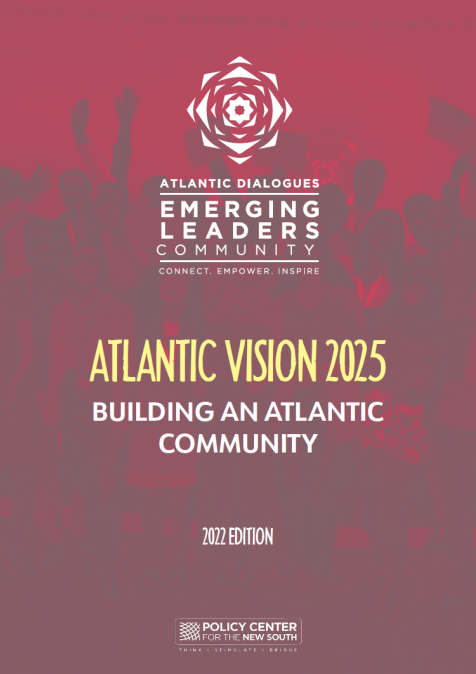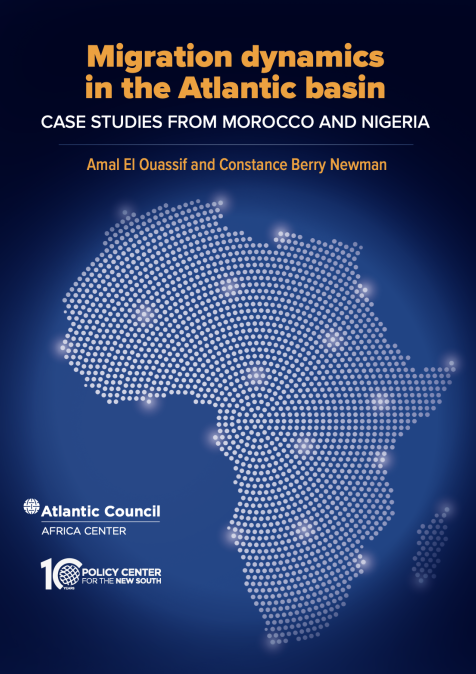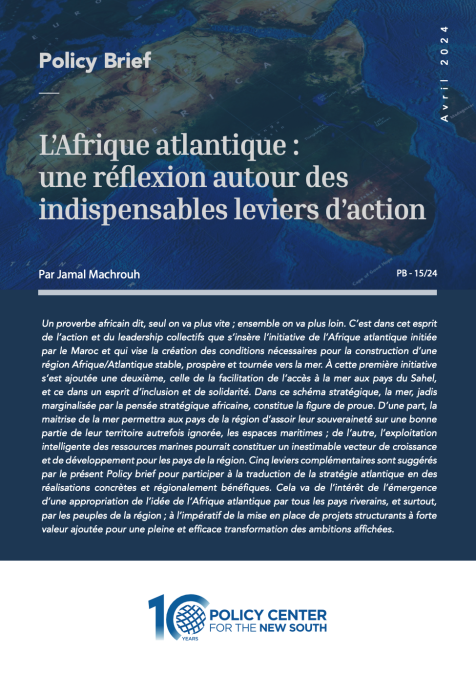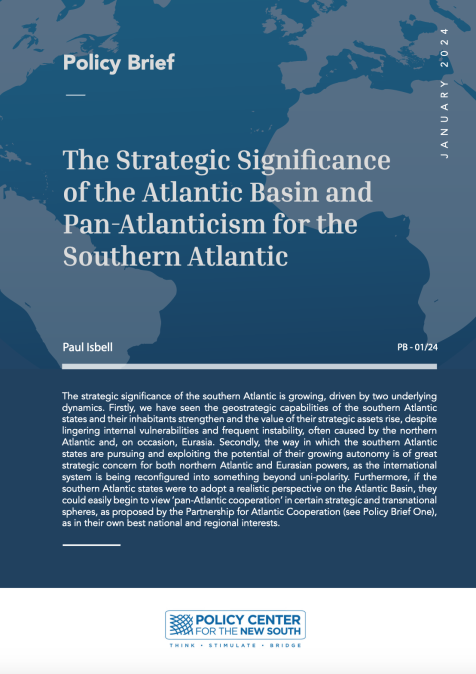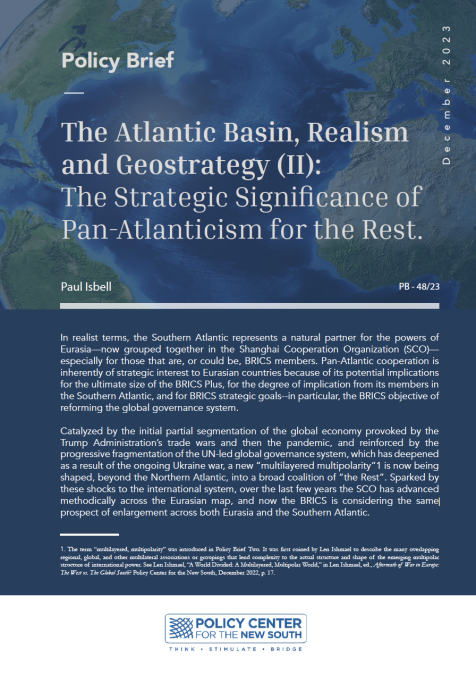Publications /
Opinion
“Entrepreneurial, curious, energetic”. This is how Youssef Kobo, a Belgian citizen coming from a Moroccan family, would describe himself in three words. Always on the road, this busy traveler is taking part in conferences and workshops all over the world. His line of work? He is an individual consultant on strategic innovation.
Despite the COVID-19 pandemic, he has launched his own enterprise, called New Blueprints, end of 2020. The demand is high for his talents of keynote speaker, coming from a variety of customers. “I am a generalist and my missions vary from advising on projects for European institutions to giving keynotes for multinationals or workshops to international think tanks”, Youssef Kobo explains.
He is also the founding director of A Seat at the table, a non profit organization he created in 2018 after participating to the Atlantic Dialogues conference in Marrakesh, to connect disadvantaged youth with opportunities and business. For this project, he consulted a number of Atlantic Dialogues Emerging Leaders (ADEL) from different cohorts, who all chipped in with ideas, feedback and so on. Youssef Kobo is also a columnist for De Tijd, and writes op-eds on geopolitics, innovation and youth for De Standaard and De Morgen. Dutch is his language, as he was born and raised in Mechelen, a city located between Brussel and Antwerp in the Dutch-speaking region of Flanders.
He is not interested in negativity in his writings. When asked about his feelings on the ongoing debates around the Moroccan and muslim community in Belgium, he replies: “This is very tiring and frustrating. Every single day, even before the 2016 terrorist attacks in Brussels and the Syrian refugee crisis, there is a national issue on Islam, Muslims, Moroccans, headscarves or what not. For some reason, we constantly talk about identity – an obsession in the public debate, but fortunately not in the everyday life and interactions in Belgium. There are some serious issues whith minorities when it comes to employment, but nothing of the scale of an apocalyptic disaster, as depicted by the media and the political elite”.
The Atlantic Dialogues, a life changing experience
This young leader has always kept a “strong and emotional connection with Morocco”, where he spent summers every year with his family, in the region of his parents, near Tetouan. This partly explains why the high-level conference Atlantic Dialogues, organized by the Policy Center for the New South, has been such a life changing experience for him. In early 2016, he met a Program Officer of the Policy Center at the Brussels Forum, a conference organized by the German Marshall Fund (GMF). “We got talking, because of our Moroccan roots, and this Program Officer told me I you should apply to the ADEL program”.
His main incentive was that he’s “always felt like a big piece was missing” in his life – as big as Africa. “I was adamant to dive into Morocco, reconnect with my roots, and amazed by the opportunities and ventures that the Atlantic Dialogues made me discover in Africa”.
The Policy Center for the New South, “leading as an example, gave me the drive to come back more in Africa”, he further explains. Youssef Kobo was “so triggered, as a young Moroccan living in Belgium, to hear the vision of the Policy Center about how Africa should take charge of its own future and destiny”, that he launched A Seat at the Table soon after.
Shirley Chisholm as an inspiration
His non profit organization was inspired by a quote from Shirley Chisholm, the first African-American woman elected at the US House of representatives, in 1968: “If they don’t give you a seat at the table, bring your own folding chair”. Mentionned during a closing panel of the Atlantic Dialogues in 2016, this sentence lighted a spark that soon became a fire. “I believe in this mindset of reaching out to young people from a disadvantaged background” like himself, who comes from the lower part of the social ladder.
The self-made man, who has left university after two years of law studies, once understood that what sounded like “the most prestigious thing was too boring, and not for me”. When he left Marrakech in December 2016, his wish was to make sure he would stay in touch with ADEL Alumni, and create a local impact to give back to his community. In his mentoring programs for the youth, he often says: “If you want to be a leader, create your own opportunities”. Every week, A Seat at the Table organizes events with young professionals and students visiting international institutions, meeting CEO’s or taking part in workshops on soft skills.
His aspirations for the future are quite simple : making his current activities grow bigger. “I like being constantly on the move, in a rapidly changing environment, generating social impact”. In his Brussels office, he is sitting in front of an impressive wall, made of over 2000 books he likes, from the ground to the ceiling. Among his latest reads, he mentions Niall Ferguson, author of Doom, the Politics of Catastrophe (2021), the autobiography of the US actor Will Smith, and The Laws of Human Nature (2018) by Robert Greene.
Youssef Kobo has returned to the Atlantic Dialogues as a speaker, and is grateful that the Policy Center is “investing in its Alumni, something you don’t often see in other conferences and leadership programs”.
You can consult Youssef’s portrait along with others on the ADEL Alumni Portrait page.

